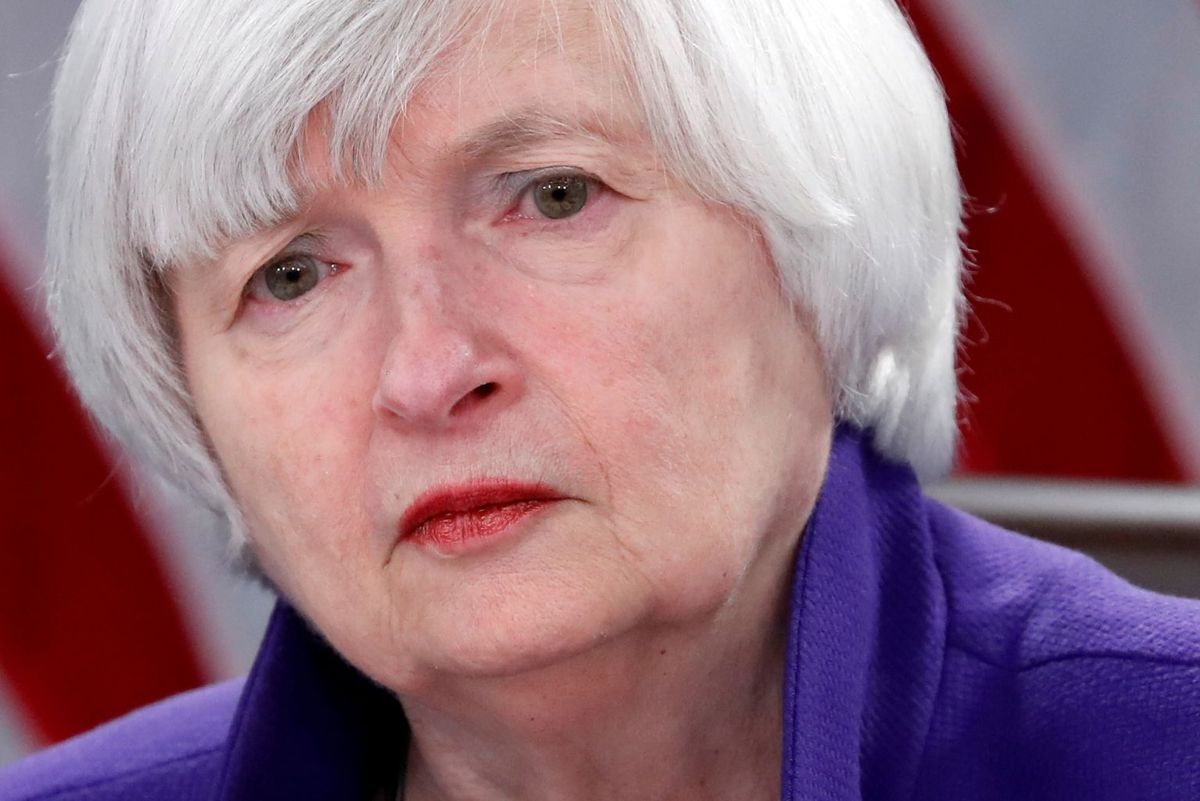Why is the US supporting a minimum global tax for multinational corporations?

A few minutes every morning is all you need.
Stay up to date on the world's Headlines and Human Stories. It's fun, it's factual, it's fluff-free.
Yellen’s support for a global tax minimum is largely tied to the new US$2.3 trillion infrastructure plan being proposed by President Joe Biden, which has faced Republican criticism for its size.
On April 5, United States Treasury Secretary Janet Yellen gave her full-throated support to the introduction of a minimum global corporate income tax in a virtual speech she gave to the Chicago Council on Global Affairs, arguing that the global tax would prevent a “race to the bottom” between countries competing for business by lowering tax rates.
In her speech, which contained her most extensive comments since taking over as treasury secretary, Yellen said that the Biden administration would be working with other countries in the Group of Twenty to set a minimum global tax. The tax, if agreed upon internationally, would discourage companies from shifting profits overseas in an effort to evade high taxes.
“Competitiveness is about more than how US-headquartered companies fare against other companies in global merger and acquisition bids,” Yellen said in her speech to the council. “It is about making sure that governments have stable tax systems that raise sufficient revenue to invest in essential public goods and respond to crises, and that all citizens fairly share the burden of financing government.”
Yellen’s support for a global tax minimum is largely tied to the new US$2.3 trillion infrastructure plan being proposed by President Joe Biden, which has faced Republican criticism for its size.
Democrats have proposed increasing corporate taxes from 21% to 28% to pay for the plan, partially reversing the Trump administration’s move to cut the corporate tax rate from 35% in 2017. Biden has also encouraged legislation that would set a minimum tax in the US on overseas corporate income, as well as legislation that would make it more difficult for companies to shift their earnings to lower-tax countries.
Yellen’s remarks are being seen as an endorsement of negotiations that have been held for about two years at the Organization for Economic Cooperation and Development (OECD), which includes 37 nations. Those talks have focused on getting other countries to adopt minimum corporate taxes.
The new tax plan introduced by the Biden administration will penalize countries that lack such minimum corporate tax rates by increasing taxes on their US-based subsidiaries.
Though Biden has said that he is “not at all” concerned that the tax increase on corporations would result in some US companies moving overseas in an effort to save on taxes, the global minimum corporate tax seems designed to keep that from happening in the first place.
The proposal has been met by vocal opposition from Republicans, with Pennsylvania Senator Pat Toomey saying that the proposal wasn’t likely to make any ground internationally and that if Republicans regained a congressional majority in upcoming elections they should reverse any corporate tax increases imposed by the Biden administration.
“Spoiler alert: This effort will likely fail,” Toomey said, “and even if there is some sort of agreement, it will be non-binding because it is not a treaty.”
In her speech, Yellen also discussed broader economic foreign policy, indicating a clear path away from Trump-era global economics that largely put American interests first at any international cost.
“Over the last four years, we have seen firsthand what happens when America steps back from the global stage,” Yellen stated. “America first must never mean America alone.”
Yellen added that the US is committed to returning to its place of leadership in the global economy, arguing that it would work to increase its presence and fortitude on the global market. She highlighted her unique perspective on climate change as an economic problem, discussing ways of combating it as well as the effect the pandemic has had on shrinking the global economy.
Yellen asked countries to continue financially supporting developing countries, warning of growing global inequities and continued COVID-19 problems for years to come if some countries withdraw prematurely.
She also mentioned slow vaccine deployment globally and stated that, for countries unable to support a robust national vaccination effort, “The result will likely be a deeper and longer-lasting crisis, with mounting problems of indebtedness, more entrenched poverty, and growing inequality.”
Yellen estimated that as many as 150 million people could end up pushed into extreme poverty by the end of this year as a result of the economic repercussions of the virus.
On the subject of China, Yellen said that the US is interested in being cooperative, but not afraid to shy away from potential economic challenges or conflicts that might arise. China and the US have been on rocky economic terms since the recent trade war that has left both countries battered and seen sanctions placed on high-ranking individuals on both sides.
“Our economic relationship with China, like our broader relationship with China, will be competitive where it should be, collaborative where it can be, and adversarial where it must be,” Yellen added.
Have a tip or story? Get in touch with our reporters at tips@themilsource.com




Comments ()